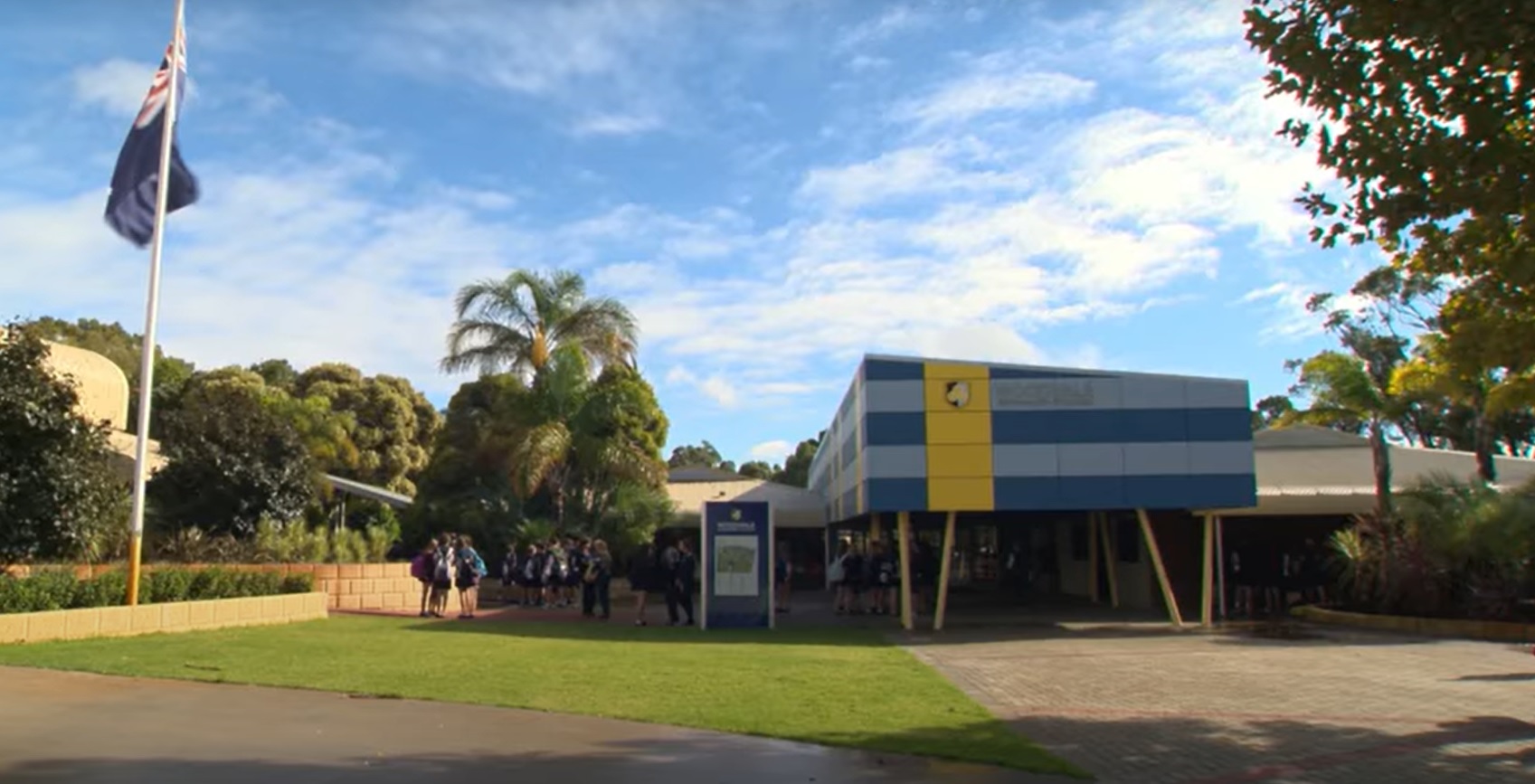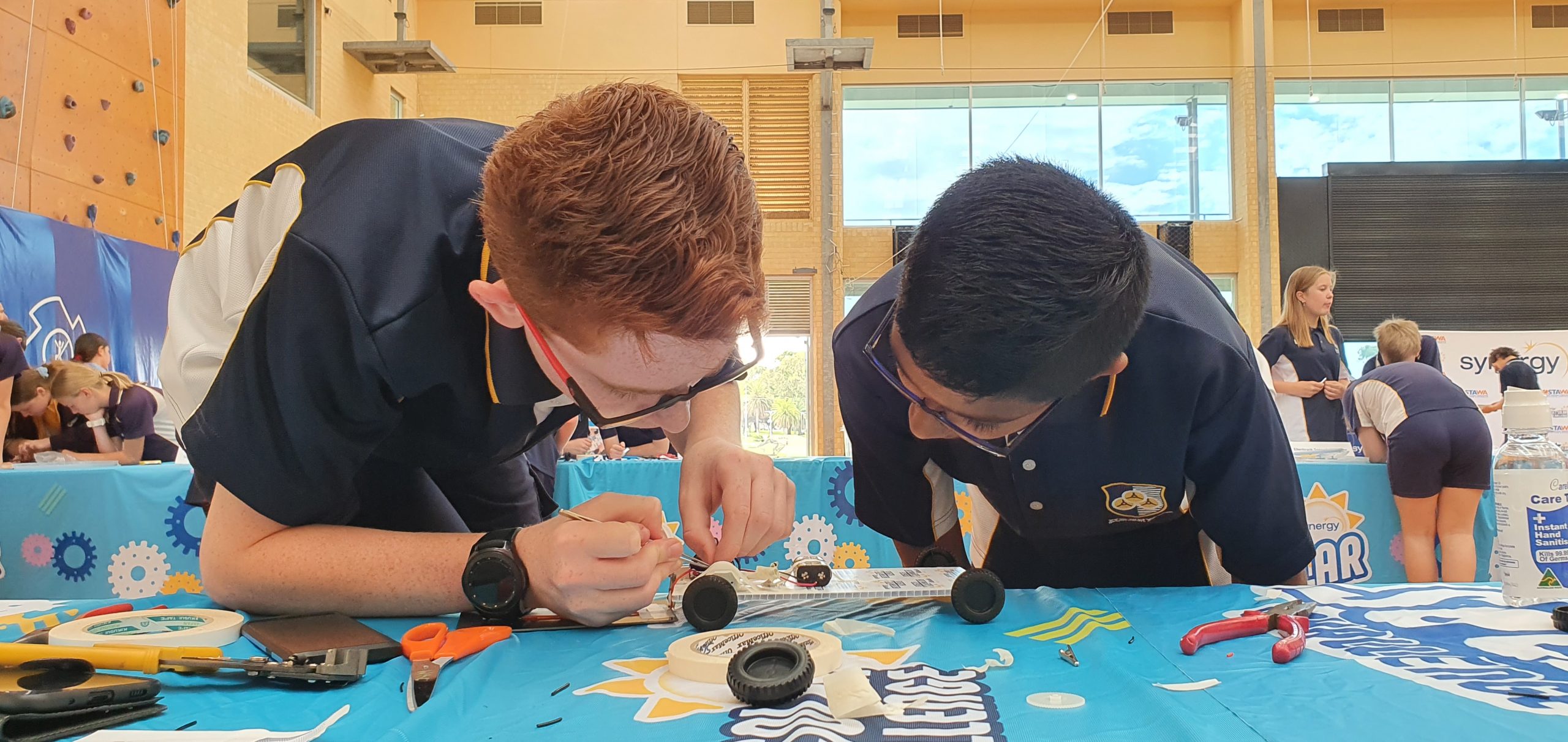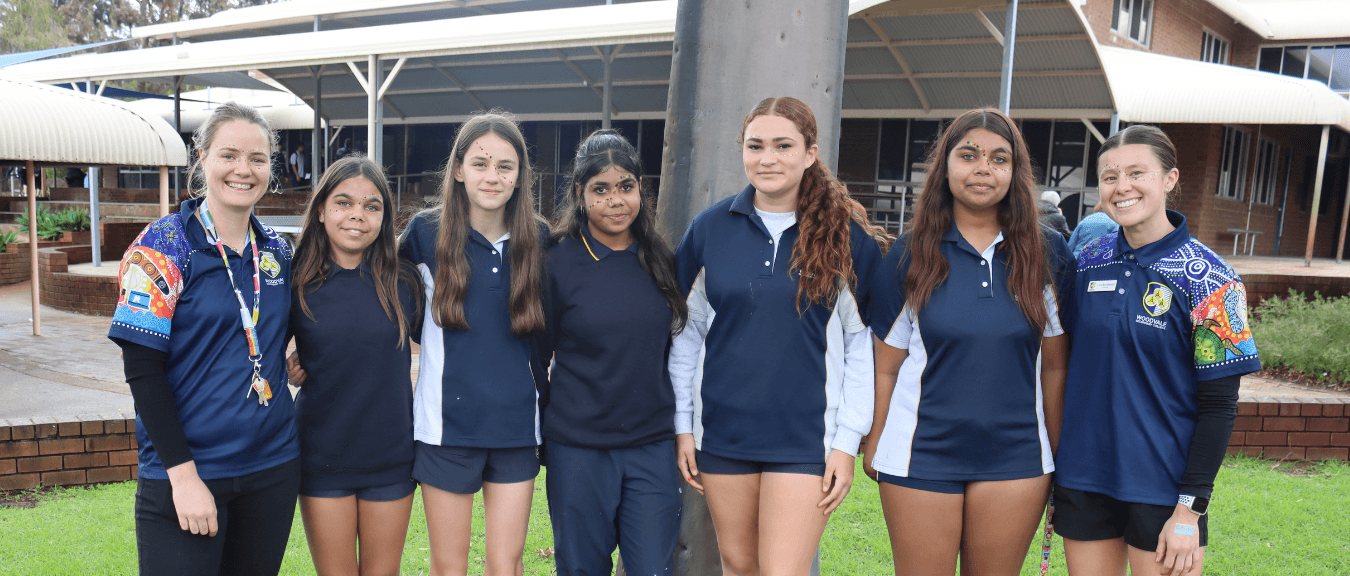
Aboriginal Cultural Awareness
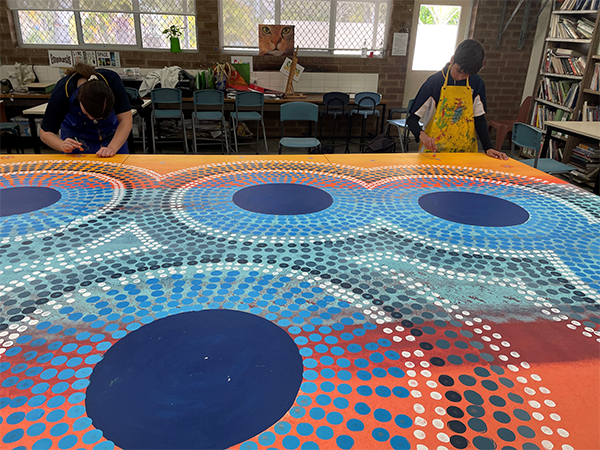

Firstly, promoting academic success amongst our Aboriginal and Torres Strait Islander students and ensuring that they leave the College with an enhanced sense of pride in their Aboriginal identity. Secondly. our college and the wider community has an obligation to learn from, embrace and share in an understanding of Aboriginal histories and culture, particularly that of the traditional custodians, the Whadjuk Nyoongar people, which is the traditional name of the Joondalup coastal region.
The name Joondalup is a Whadjuk Noongar word, possibly meaning either “place of whiteness or glistening”, or “place of a creature that can only move backwards”. There is also a reference to the name of an important Whadjuk Noongar elder named Joondalup. Most probably the glistening reference is more relevant as the Whadjuk Noongar tribes would have been camped along the Joondalup lake region in autumn and spring as they completed their annual migration from the coast to the hills. At this time of the year there would have been bright reflection of the moon on the waters of the lakes in the evening (because of the earlier setting of the sun at this time of the year). This would have great cultural significance to the people, probably linking the wetlands to their spiritual ancestor the Wagyll.
Noongar seasons are:
Birak – Season of the young. First summer: December-January.
Bunuru – Second season of summer – February – March – Season of Adolescence – hottest season
Djeran – Season of adulthood. Autumn: April-May. Ant season. Cooler weather begins
Makuru – Season of fertility. Winter: June-July. Coldest and wettest season
Djilba – Season of conception. First spring: August-September.
Kambarang – Season of birth. Second spring: October-November.
Follow the Dream Program
The Follow the Dream Program at Woodvale Secondary College is a tailored initiative designed to support the academic excellence, personal growth, and overall well-being of Aboriginal and Torres Strait Islander students. The program fosters positive relationships among students, staff, and Program Coordinators, celebrating achievements and encouraging active school participation. Beyond high-achieving students, individualized learning plans cater to diverse needs.
In addition to traditional academic pursuits, the program incorporates unique experiences that hold cultural significance. Exploring local history, particularly the importance of Yellagonga, enriches students’ understanding of their community. Hands-on activities, such as using indigenous herbs to create delicious treats like meringues, add a practical and cultural dimension to their learning. Craft activities, including beading and painting, offer creative outlets for expression, further contributing to a holistic educational experience that respects and honours Aboriginal and Torres Strait Islander cultures.
While academic success remains a priority, the heart of the program lies in supporting the well-being of Aboriginal and Torres Strait Islander students. The exploration of local history, cultural activities, and creative endeavours contributes to a supportive environment that nurtures both academic and personal growth, acknowledging and celebrating the unique identities and backgrounds of the participants. The Follow the Dream Program ensures a comprehensive approach to education that is culturally sensitive and responsive to the needs of its Aboriginal and Torres Strait Islander students

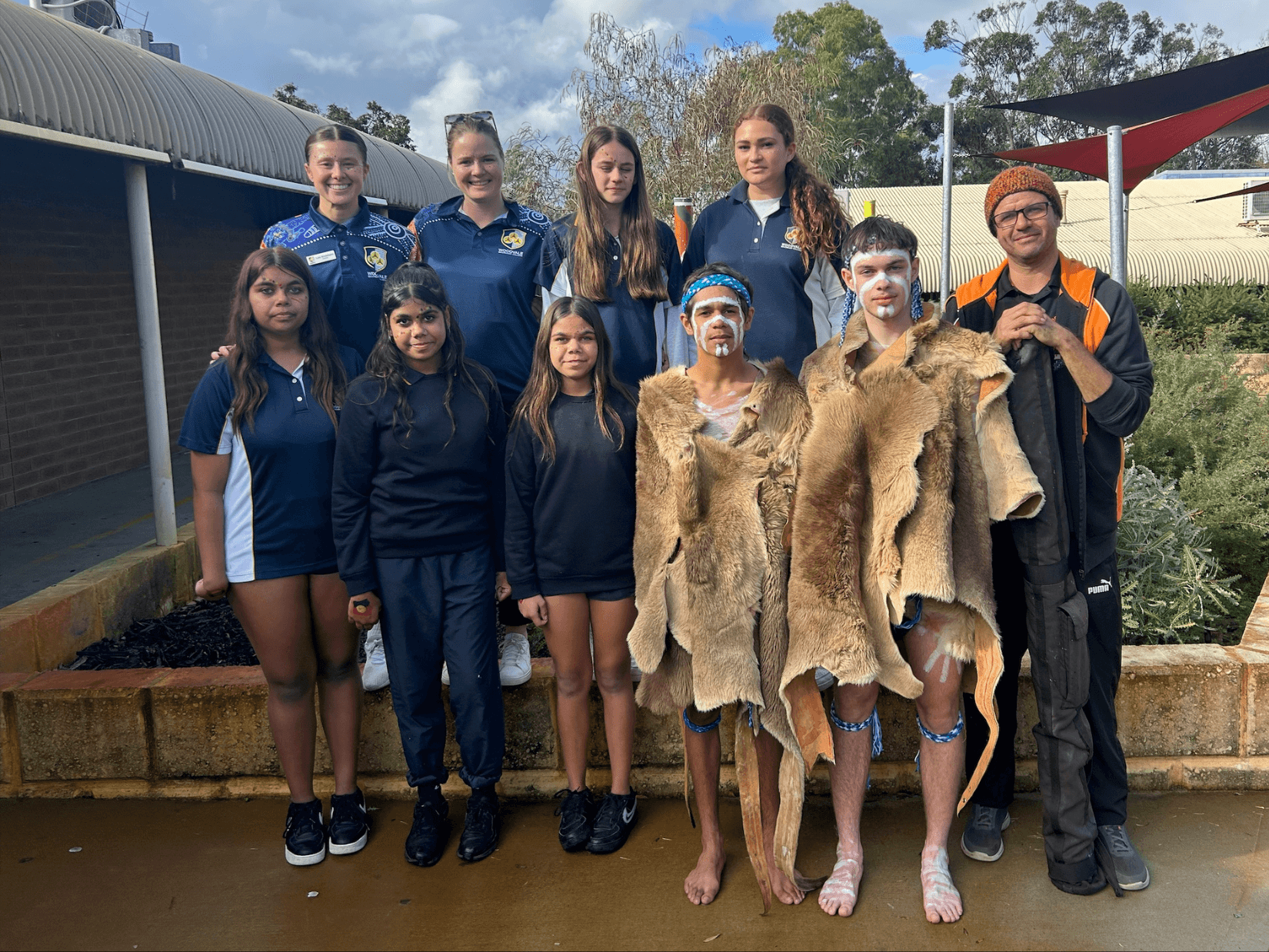
College Reconciliation Walk
See below an interactive map of the College Reconciliation Walk which highlights Aboriginal and Torres Strait Islander peoples installations around the college.
Woodvale Secondary College Reconciliation Walk
Cultural Competence
Cultural competence is the ability to understand, interact and communicate effectively and sensitively with people from a cultural background that is different to one’s own. It is more than the knowledge and skills needed to interact with different cultural groups; it is about the attitudes informing those interactions. Cultural competency means respecting and valuing the cultures and traditions of Aboriginal people and recognising that connections to family, community, country and culture are central to a person’s well-being. For schools, this means recognising the diverse cultural and linguistic needs of students and building on relationships with relevant cultural groups in the school community. Schools respect cultural differences and recognise the need for change in school-wide approaches.
Reference ACF document
The Aboriginal Cultural Framework has five domains that are embedded in our Aboriginal Cultural Framework:
- Relationships: Staff establish and maintain positive relationships with Aboriginal students, their parents and families.
- Leadership: School leaders develop a clear vision for the teaching and learning of Aboriginal students.
- Teaching: Teachers know how culture and experiences shape the learning of each Aboriginal student.
- Learning Environment: Staff support Aboriginal students to feel a sense of belonging and connection to the school.
- Resources: Staff acknowledge and value the expertise of Aboriginal staff.
- https://www.noongarculture.org.au/
Disclaimer
Please be aware that there are different ways to spell Nyoongar (e.g. Nyungar, Nyoongar, Noongah) and Nyoongar words. Nyoongar language, like all traditional languages in Australia is an oral language. Throughout this document we have maintained the spelling as Nyoongar, and we respectfully include all people in the southwest.









